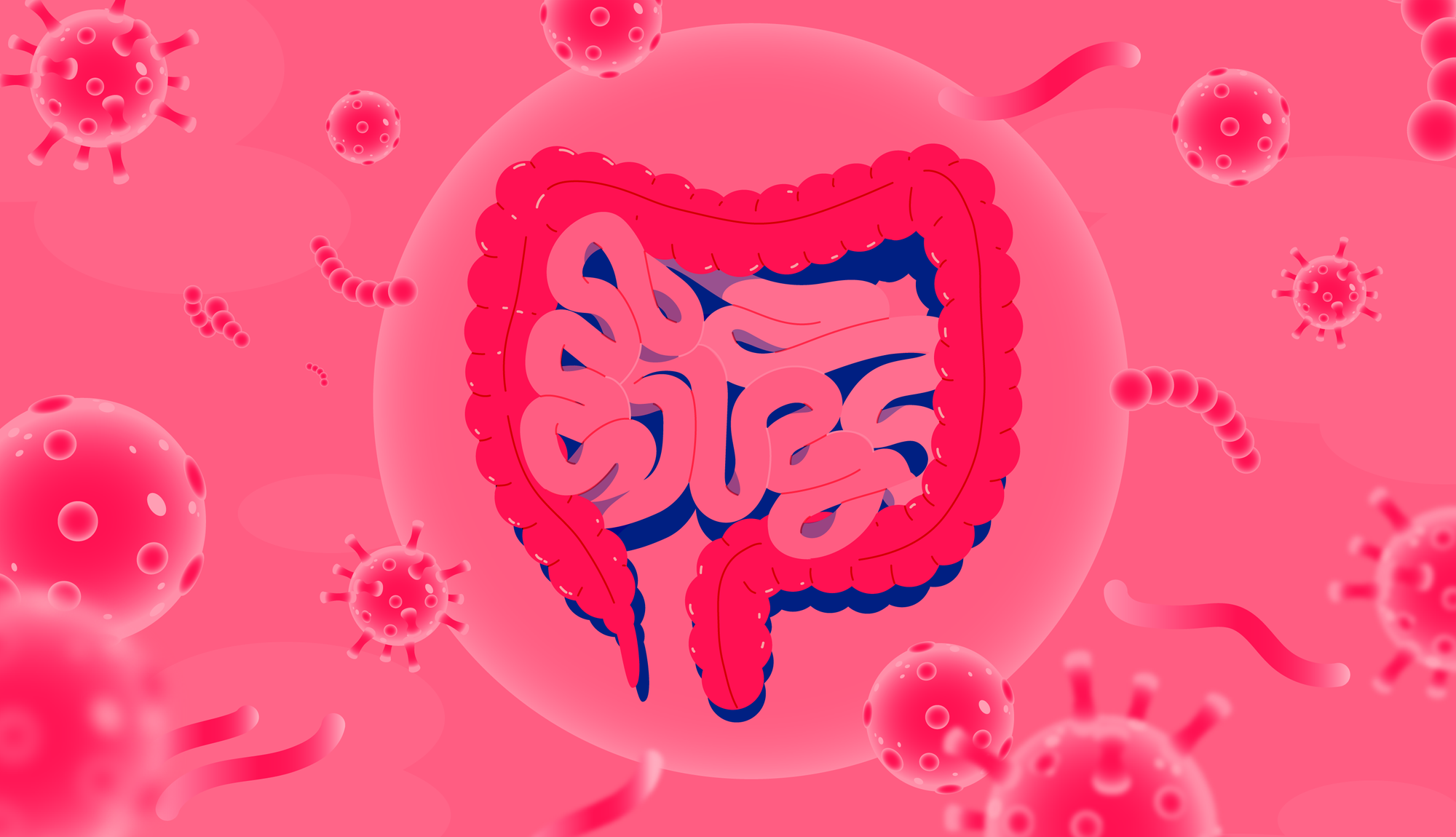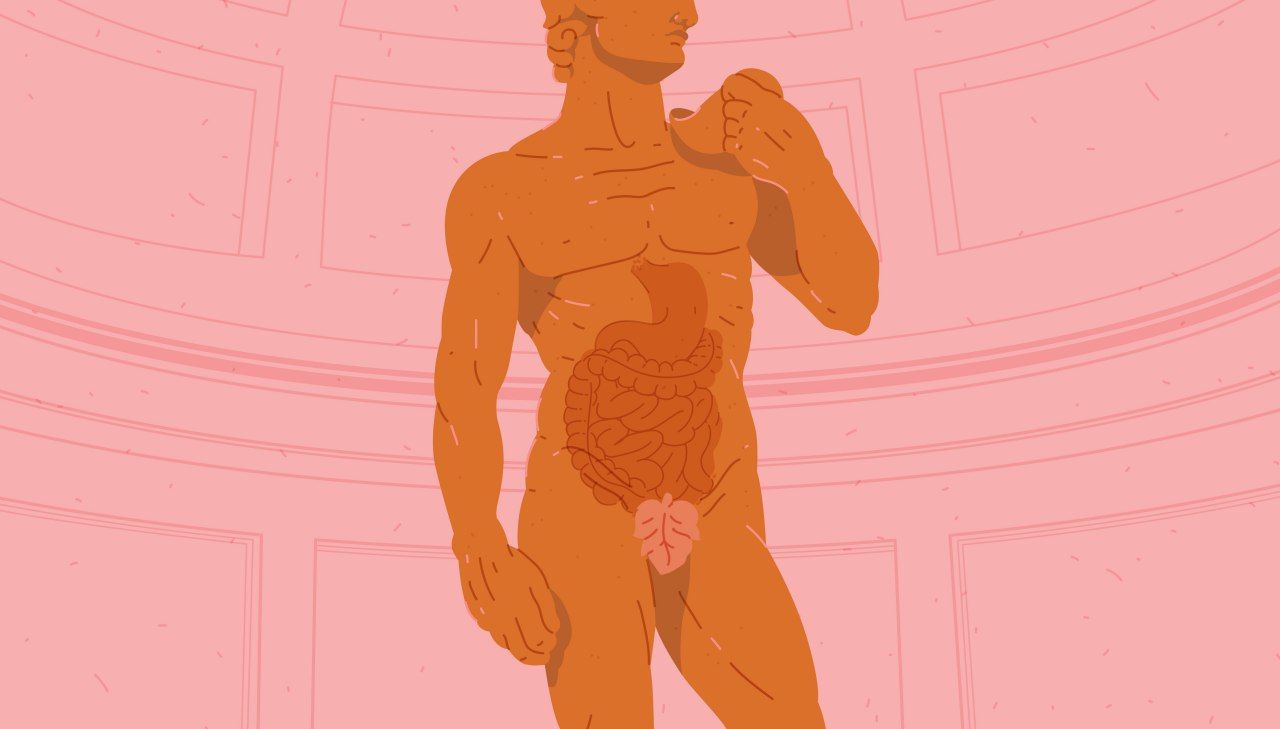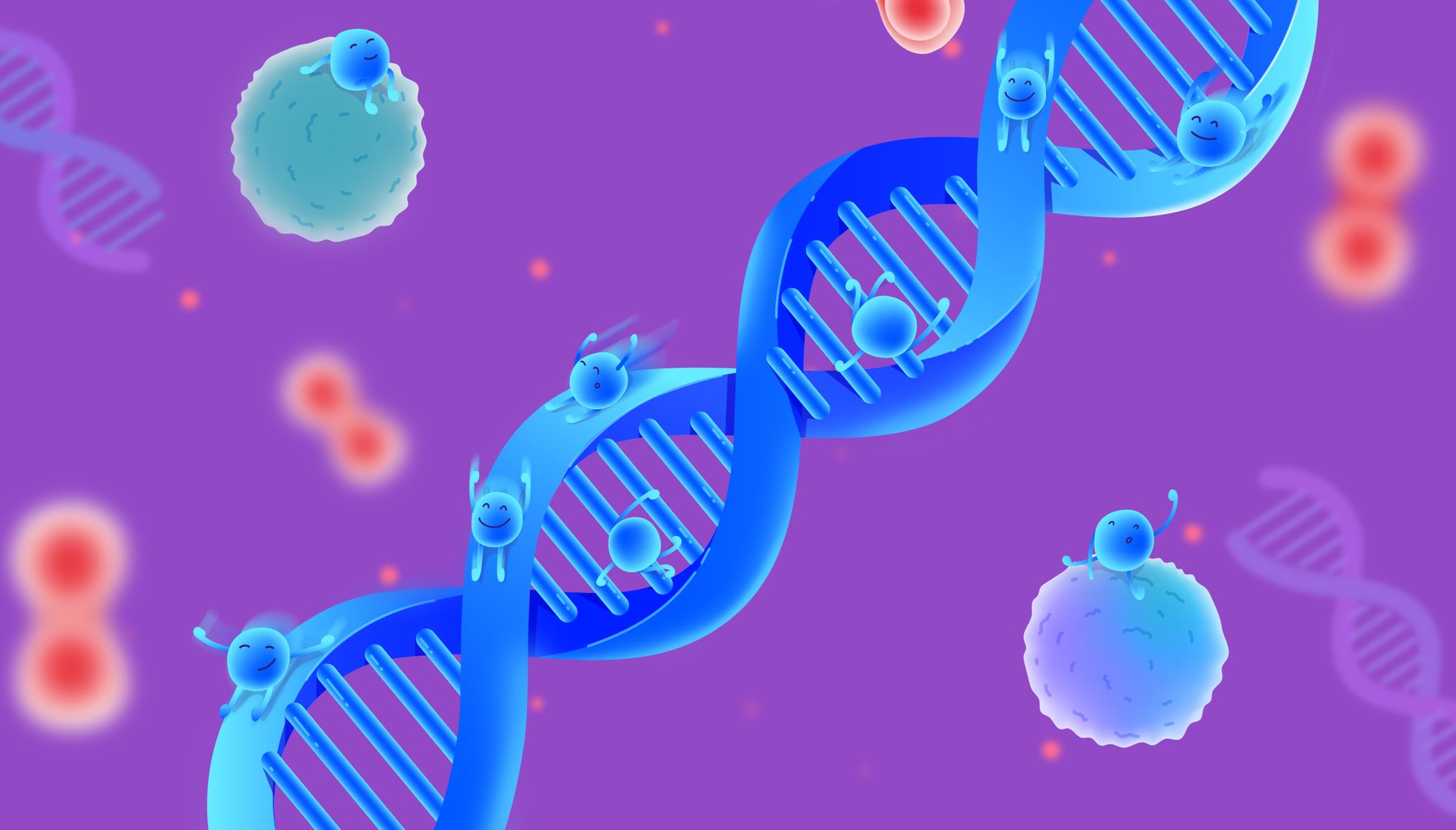Your gut needs butyrate for health, and it's made by the gut microbiome. Here's what you need to know about it.
Gut bacteria produce butyrate, an important short-chain fatty acid that supports digestive health, helps control inflammation, and even aids in preventing disease. Here's why you need more butyrate in your life:
- 1. Fuel the gut lining
- 2. Harness antioxidant powers
- 3. Stop gut inflammation
- 4. Say no to cancer
- 5. Plug that leaky gut
- 6. Combat obesity and diabetes
- 7. Protect your brain
- 8. Boost butyrate with fiber
- 9. It's a social molecule
Your body produces less butyrate than other short-chain fatty acids, but it has many health benefits. It is needed for your overall gut health, as well as helping to make energy for some of your gut cells. Plus, it can plug a leaky gut and even help stabilise blood sugar and cholesterol levels.
1. Fuels your gut cells
Butyrate is the main energy source for colonocytes, the cells which make up your gut lining.
Unlike most other cells in your body which use sugar (glucose) as their main energy source, the cells of the lining of your gut (colonocytes) mainly use butyrate. Without butyrate, these cells would not be able to carry out their functions correctly.
Members of the Firmicutes genus, a classification of bacteria, are well known for producing butyrate. More specifically, microbes like Roseburia spp., Faecalibacterium prausnitzii, and Eubacterium rectale turn prebiotics like dietary fibre into butyrate.
This three-way relationship is mutual. Butyrate fuels colonocytes, and in return these cells help provide an oxygen-free environment in which beneficial gut microbes thrive. This keeps inflammation in check, gut cells healthy, and gut bacteria happy.
2. Harness antioxidant powers
Butyrate defends your cells from harmful substances to keep your gut healthy and disease-free.
Let’s talk about free radicals, which are basically waste products from chemical reactions in the body. Antioxidants, on the other hand, are your body’s defence against them. Large numbers of free radicals cause damage and overwhelm the body’s repair systems. We call this oxidative stress.
The colon or large intestine is a storage container for the waste you produce. Higher butyrate levels have been shown to increase levels of glutathione, an antioxidant produced in the body's cells which neutralises free radicals in the gut. This is good because free radicals are linked to inflammation and many diseases.
So, increased butyrate production could improve the barrier function of the colonocytes due to its secondary antioxidant functions. This reduces the risk of diseases like bowel cancer, inflammatory bowel disease (IBD), and irritable bowel syndrome (IBS).
3. Prevents gut inflammation
Butyrate possesses anti-inflammatory and anti-cancer functions for your gut.
Your gut lining maintains a low level of inflammation just in case there are any changes at the mucosal surface that's in contact with the microbiome. The low level of inflammation is tightly controlled, but if it is disrupted, it can lead to oxidative damage and over a prolonged period, even cancer.
So, your diet can have a massive effect on both butyrate production as well as gut inflammation. A diet high in fiber is particularly beneficial for butyrate production because it feeds your butyrate-producing bacteria. More butyrate means less inflammation.
4. Take action against cancer
Butyrate keeps your gut environment stable and is part of the protective effect associated with dietary fiber against certain cancers.
Bowel cancer, also known as colorectal cancer, is a major health burden in the western world and our diet is largely to blame. A diet low in dietary fiber affects the bacteria in your gut. Your colonocytes need butyrate for energy, and if they have no energy, they can’t work.
Butyrate is produced by gut bacteria from prebiotic fibers in plant foods
If the cells lining your gut are unable to work, cells associated with tumor progression can thrive. These give off inflammatory signals and lead to tumor development. So, low dietary fiber means reduced butyrate production, a risk factor for bowel cancer.
Butyrate is also a histone deacetylase inhibitor. Histone deacetylase is an enzyme produced in most cancers. Because butyrate is an inhibitor, it causes cells to, in effect, commit suicide, a process known as apoptosis. So, it can stop cancer cells developing altogether.
5. Plug a leaky gut
Your gut lining needs butyrate to stay healthy and function properly. It’s as simple as that.
The gut lining is an intestinal barrier. It selectively allows things like vitamins and minerals to leave the gut, enter the bloodstream, and travel to where they’re needed. Equally, it stops toxins, pathogens, and food compounds from entering the bloodstream and making you ill.
The process is called intestinal permeability by doctors and scientists. When the barrier is healthy, small holes called tight junctions relax, allowing water and nutrients to pass through.
The butyrate produced by your gut microbes from the dietary fiber provides the fuel needed by the cells in your gut lining. By doing so, it preserves the integrity of your gut lining, preventing leaky gut from occurring.
6. Combat obesity and diabetes
Butyrate could improve obesity and type II diabetes by increasing the production of certain gut hormones which improve blood sugar balance.
Insulin is released from the pancreas when your blood sugar levels rise. On the flipside, this organ releases glucagon when insulin levels (and blood sugar levels) in the bloodstream are too low, so the liver can send glucose into the bloodstream.
Together, these hormones work to keep your blood sugar levels stable. When blood sugar is too high, insulin tells the body’s muscle and fat cells to take in this excess glucose, which is why these hormones are important for obesity and diabetes.
Increased production of short-chain fatty acids, including butyrate in the colon, increases the release of these gut hormones, indicating potential benefits for managing blood sugar levels and preventing weight gain.
7. Protect your brain
As well as its roles in the gut, butyrate has significant potential to support brain health.
Butyrate, produced by the bacteria in your colon, has a range of biological functions. These functions are also associated with neuroprotective effects (that benefit your brain and nervous system).
Boosting your butyrate production through your diet is easy and low risk. One day it may even be a potential treatment option for brain diseases. More importantly, increasing your butyrate production right now can benefit your health in many ways.
8. Boost butyrate with fiber
A high fiber diet can boost butyrate production because it encourages the butyrate-producing bacteria in your colon to thrive.
Members of the Firmicutes phylum are renowned for their ability to produce butyrate. If you want to nourish this class of bacteria and, indeed your microbiome in general, then foods containing prebiotics are popular with your gut bacteria.
Diets which are high in fat and low in carbohydrates can disrupt butyrate production. Your gut bacteria feed on fiber, not animal protein. So, the best way to optimise your butyrate production is through a high-fiber diet.
Food sources which benefit butyrate production
| Barley | Oats | Rye |
| Bran | Whole grains | Mushrooms |
| Apples | Citrus | Berries | Onions | Garlic |
9. Social communication
It might sound mad but your microbial community could be influencing your social behaviour.
In short, butyrate stinks. Literally. The word is in fact derived from the Latin butyrum, meaning butter. You’re probably familiar with the smell of gone off milk or spoiled butter, well that’s butyrate. Sounds disgusting, right?
Perhaps these women are communicating by smell too thanks to butyrate?
It’s easy to understand why it would smell so bad when it is produced under anaerobic conditions like putrefaction, biological decomposition, and fermentation. Oh, and did we mention it’s also a component of body odour?
Some scientists believe we use odorous short-chain fatty acids like butyrate to (unconsciously) communicate with each other. It’s known as a “fermentation hypothesis for chemical communication”. And it might be true, let’s face it, B.O. is a pretty personal thing!
Summary
In short, butyrate is pretty cool. Your gut bacteria make butyrate from the foods you can’t digest. As a result, it provides your body with many health benefits. Enriching your diet with fibre will help to increase your butyrate production and your gut microbes will love you for it too.
☝️TIP☝️Discover your gut bacteria and their functions with the Atlas Microbiome Test and get 10% off when you sign up for blog updates!
- Adams, J, B et al. (2011). Gastrointestinal Flora and Gastrointestinal Status in Children with Autism – Comparisons to Typical Children and Correlation with Autism Severity. BMC Gastroenterology: 11(22)
- Canani, R, B et al. (2011). Potential Beneficial Effects of Butyrate in Intestinal and Extraintestinal Diseases. World J Gastroenterol: 17(12), pp 1519-1528.
- Frost, G, S et al. (2014). Impacts of Plant-Based Foods in Ancestral Hominin Diets on the Metabolism and Function of Gut Microbiota In Vitro. mBio: 5(3).
- Hamer, H, M et al. (2009). Butyrate Modulates Oxidative Stress in the Colonic Mucosa of Healthy Humans. Clinical Nutrition: 28(1), pp 88-93.
- Kratsman, N et al. (2016). Sodium Butyrate Attenuates Social Behavior Deficits and Modifies the Transcription of Inhibitory/Excitatory Genes in the Frontal Cortex of an Autism Model. Neuropharmacology: 102, pp 136-145.
- Liu, H et al. (2018). Butyrate: A Double-Edged Sword for Health? Advances in Nutrition: 9(1), pp 21-29.
- Peng, L et al. (2009). Butyrate Enhances the Intestinal Barrier by Facilitating Tight Junction Assembly via Activation of AMP-Activated Protein Kinase in Caco-2 Cell Monolayers. The Journal of Nutrition.
- Stilling, R, M et al. (2016). The Neuropharmacology of Butyrate: The Bread and Butter of the Microbiota-Gut-Brain Axis? Neurochemistry International: 90, pp 1-23.
- van de Wouw, M et al. (2017). Microbiota-Gut-Brain Axis: Modulator of Host Metabolism and Appetite. The Journal of Nutrition: 147(5), pp 727-745.
- Wu, X et al. (2018). Effects of the Intestinal Microbial Metabolite Butyrate on the Development of Colorectal Cancer. Journal of Cancer: 9.
























